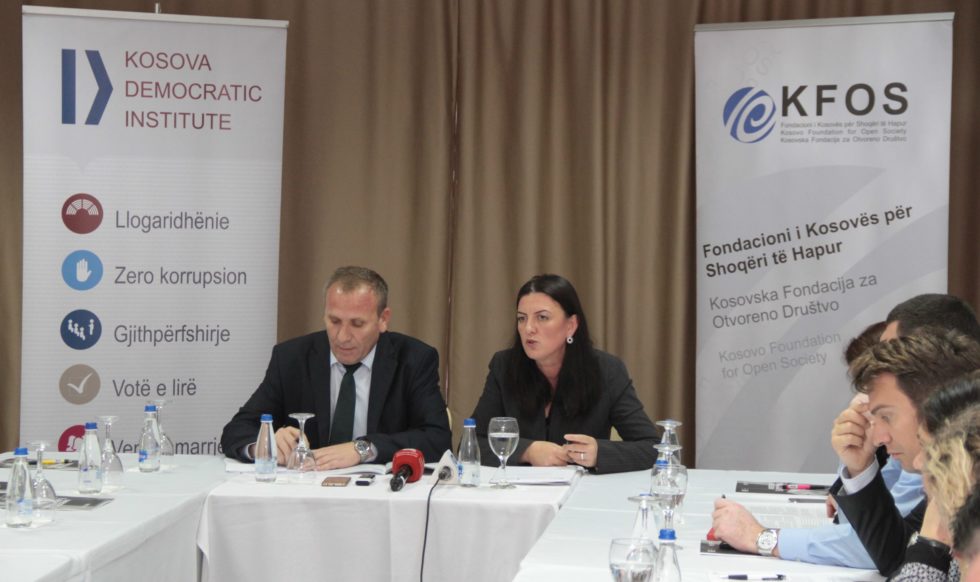


The Kosovo Democratic Institute, through a roundtable, presented the research report “Patched Investments” that highlights the economic consequences arising from the lack of performance evaluation of economic operators contracted through public procurement. For this purpose, three capital investments were analyzed: Business Park in Drenas, and two primary schools in Ferizaj, “Faik Konica” and “Tefik Çanga”, and have also been illustrated other examples from different cities Kosovo.
This analysis highlighted many consequences that exacerbate the public budget, citizen’s well-being and public health.
Diana Metushi Krasniqi from KDI said that the poor management of public contracts is costing Kosovar taxpayers both in quality and in the cost of the services they receive. She added that the Contracting Authorities were often required to award new contracts to “patch” the earlier investment, rather than use this money for new investments that would improve the lives of citizens.
“Patched Investments” concludes that the loss and misuse of taxpayer money through public procurement is not just a perception, but it is a fact stemming from the deficient public accountability of our institutions. Since capital investments are accounted as costliest investments with highest longevity, sustainability, visibility and the highest impact on our well-being, and where the main investor is the taxpayer, while the main beneficiary is the citizen, we as taxpayers cannot tolerate mismanagement or further loss of money in their “patching”, she added.
While Safet Hoxha, Chairman of PPRC, stressed that “management and planning of public contracts continues to be a huge problem, and it is more than necessary to establish a new mechanism for contract management, as well as it is important for civil society and the media to continue tackling this issue as much as possible.”
KDI provided a number of recommendations to improve policies and practices in managing public contracts to ensure that the burden of mismanagement does not fall on the pocket of the citizen, thus creating the need for additional spending that exacerbates budget, welfare and health public. Some of these recommendations emphasize the need for law enforcement for the creation of management teams by public institutions, penalizing economic operators through contract insurance, and improving current legislation in management and ongoing monitoring of public contract implementation. Also, KDI calls on citizens to engage as much as possible in the identification and reporting of these violations and mismanagement, with the aim to save public money and guarantee the welfare of citizens!
KDI, within this project, has also produced a detailed report on the consequences that the citizen face from the poor management of contracts and the lack of punishment of irresponsible economic operators.
This project is supported by Kosovo Foundation for Open Society – KFOS.